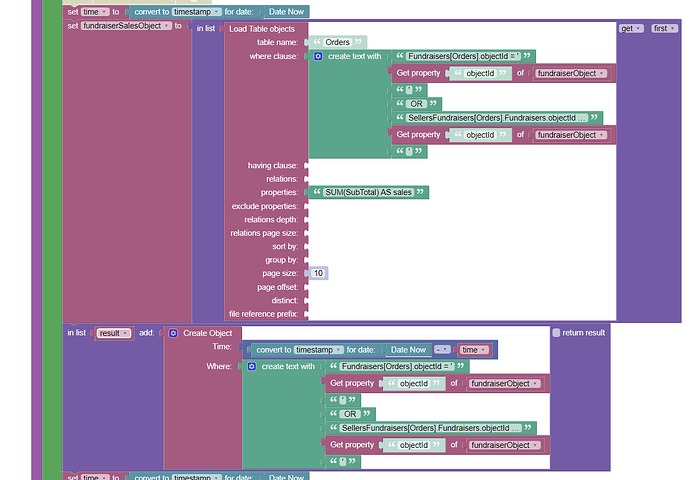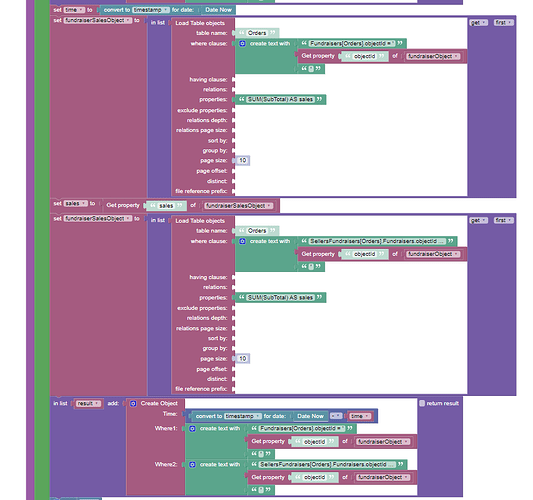I’m trying to make my code more efficient, especially considering the 100 concurrent request limit. I thought a single query with an OR would require fewer resources and not be any slower. however, the OR query takes 10-15 times longer than two queries.
Other than testing every single query in multiple variations for performance, is there a best practice? It seems like going to the DB a bunch of times is faster, which is counter-intuitive to everything I’ve ever known.
Run 1
OR Query - 2706 ms
Two Queries - 163 ms
Run 2
OR Query - 2343 ms
Two Queries - 270 ms
Run 3
OR Query - 2246 ms
Two Queries - 162 ms
OR Query
Table: Orders
“Where”: “Fundraisers[Orders].objectId = ‘B53D5852-CDC4-4C23-AA1F-816A5F19165C’ OR SellersFundraisers[Orders].Fundraisers.objectId = ‘B53D5852-CDC4-4C23-AA1F-816A5F19165C’”
Properties: SUM(SubTotal) AS sales
Test code -
Two Queries
Table: Orders
“Where1”: “Fundraisers[Orders].objectId = ‘B53D5852-CDC4-4C23-AA1F-816A5F19165C’”,
“Where2”: “SellersFundraisers[Orders].Fundraisers.objectId = ‘B53D5852-CDC4-4C23-AA1F-816A5F19165C’”,
Properties (for both queries): SUM(SubTotal) AS sales
Test code -

